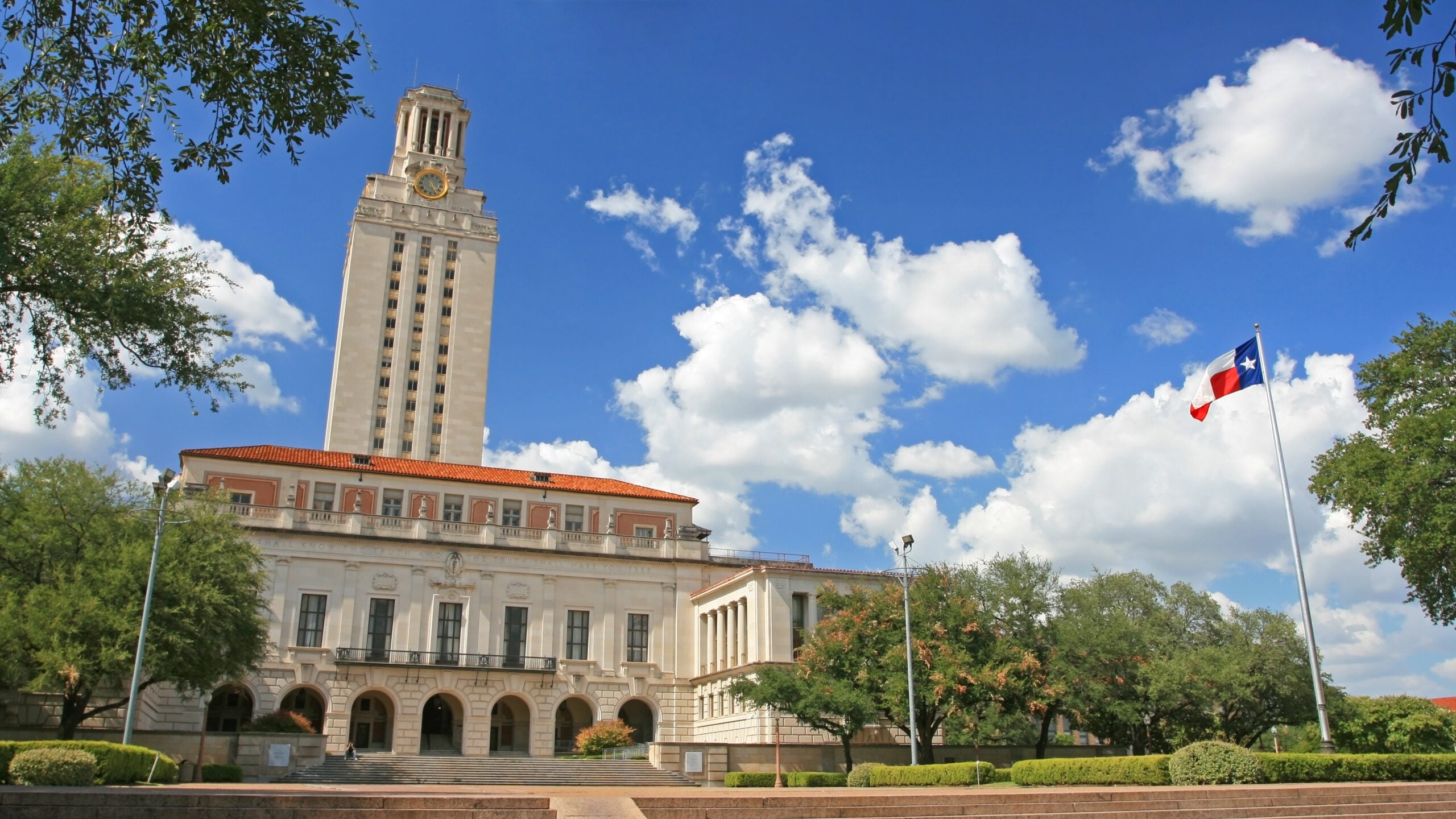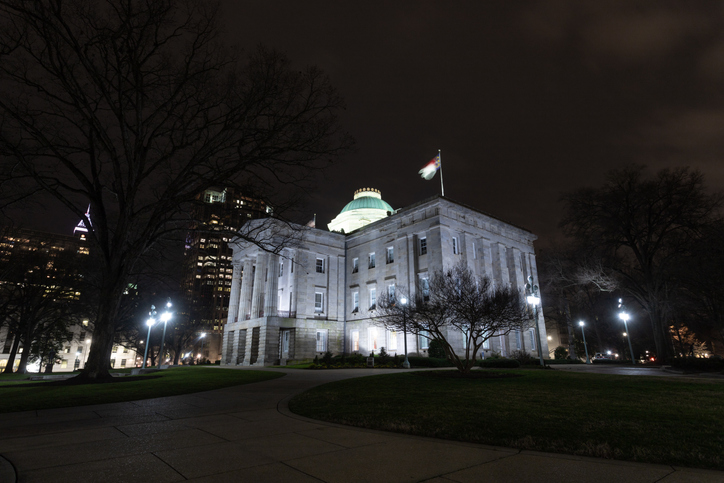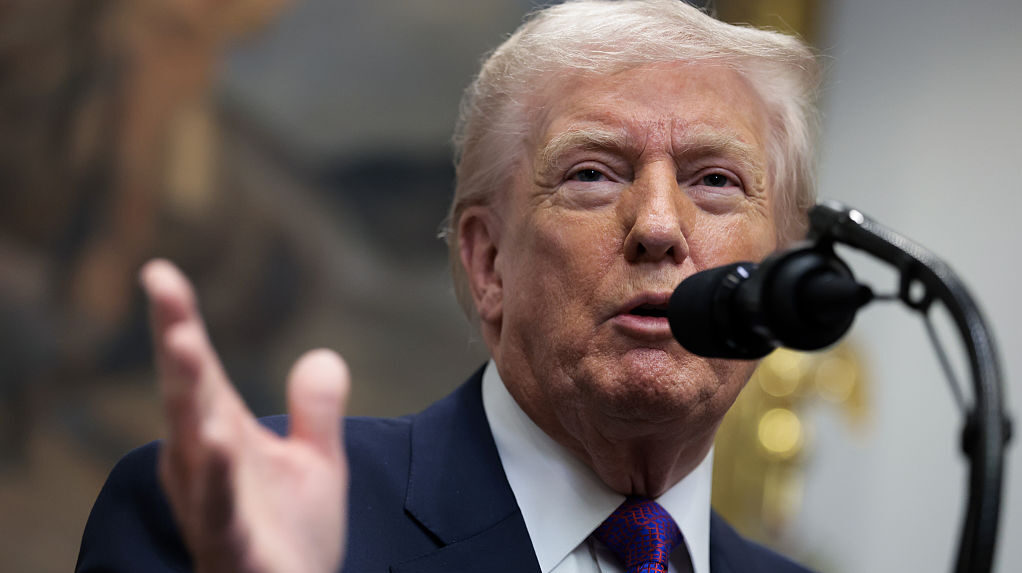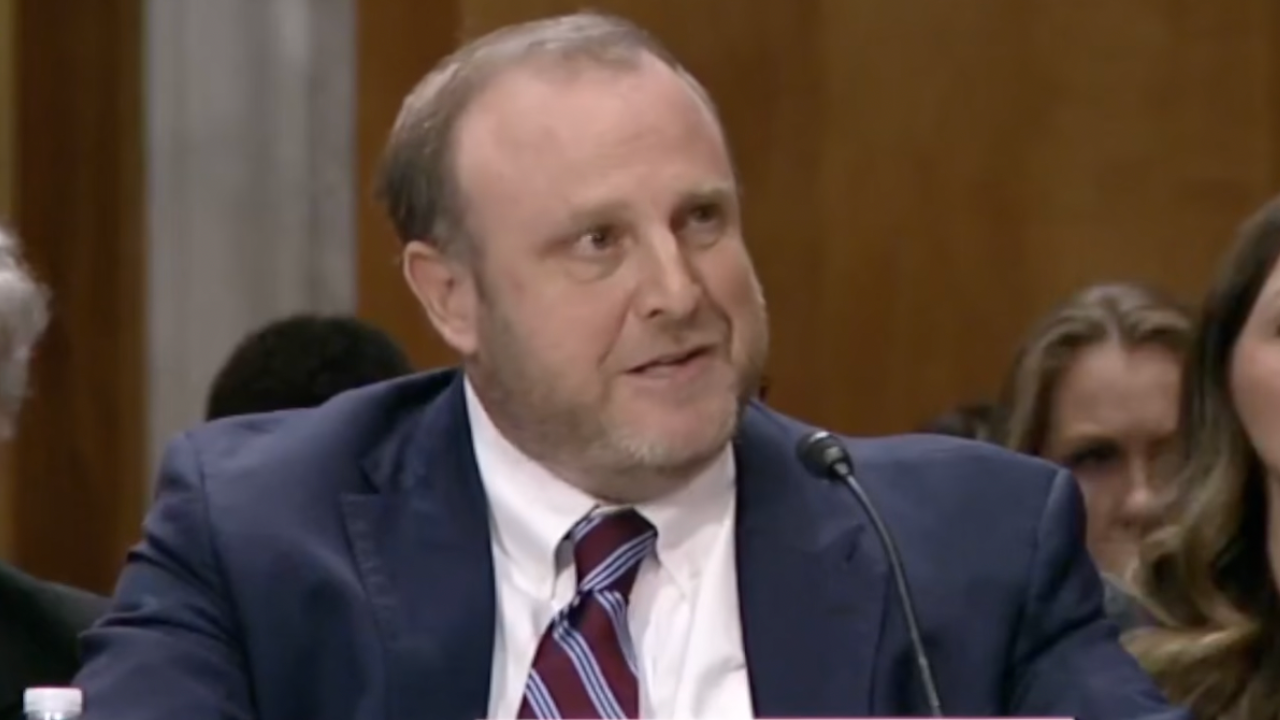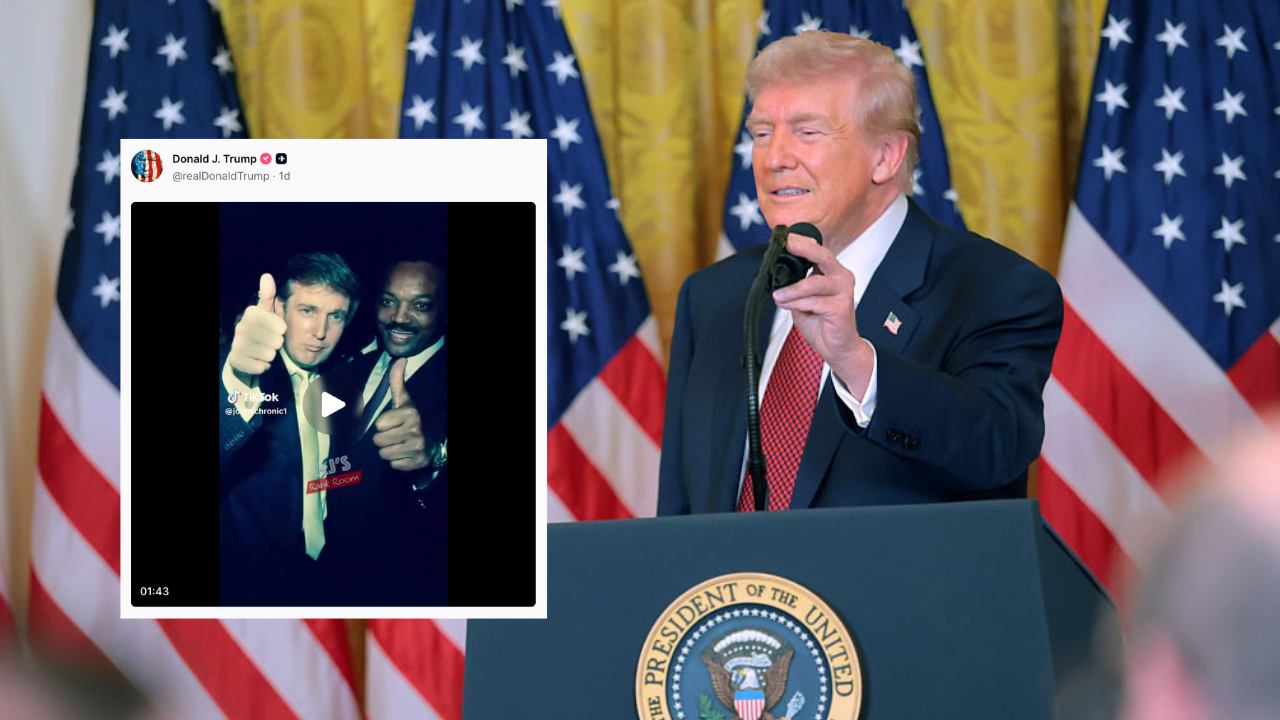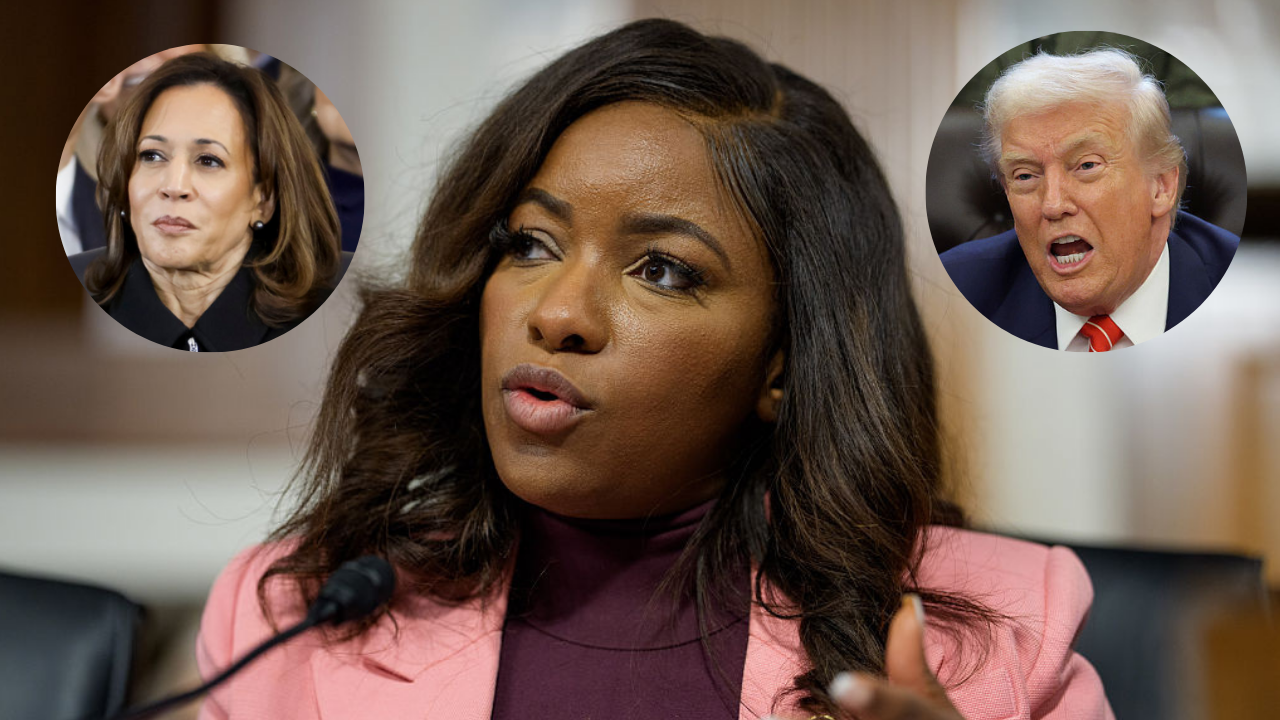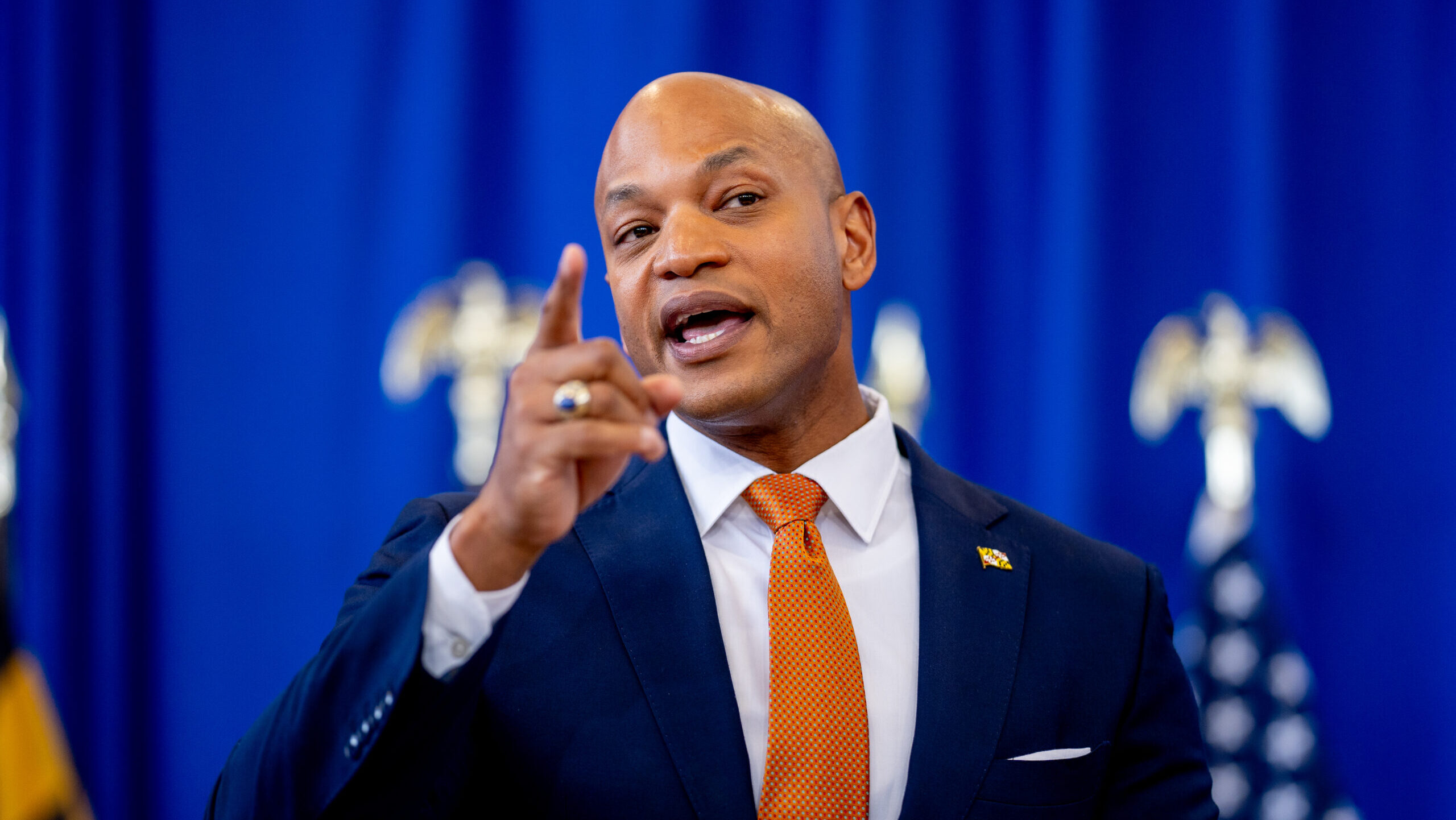Trump student loan reforms target growing profession for Black workers that could be ‘life or death’
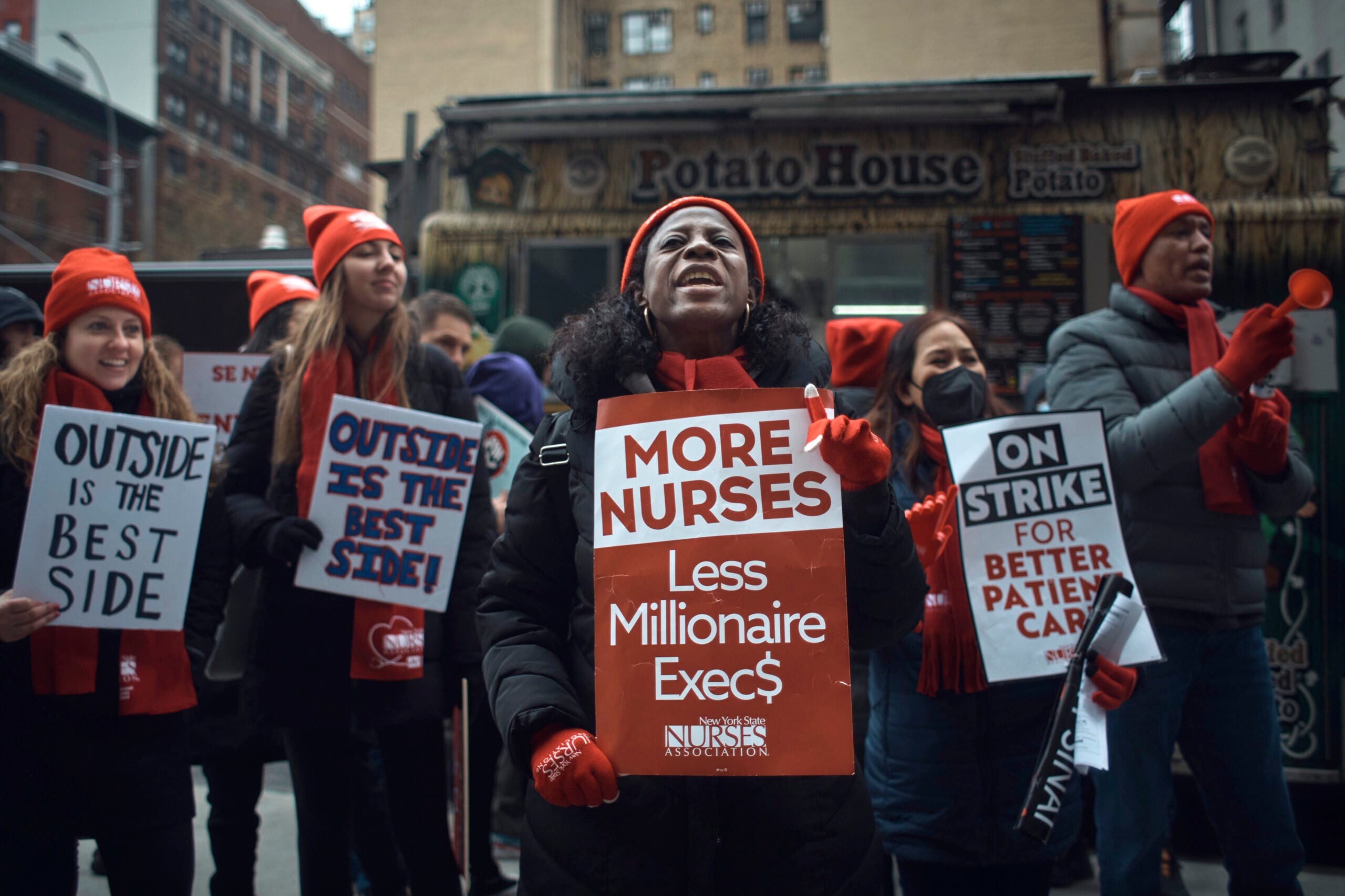
The impact of student loan borrowing reforms on the nursing industry has raised especially significant concerns for Black communities.
An underreported update to the federal student loan system is gaining more attention as advocates speak out about its impact on a growing professional field that could significantly impact the health and economic stability of Black Americans.
President Donald Trump’s signature law, the “One Big Beautiful Bill Act,” passed on July 4, sets borrowing limits for graduate student loans for those pursuing certain professions, namely nursing—an industry where Black Americans are underrepresented but advocates say are desperately needed.
The rule change within the U.S. Department of Education removes the classification of nursing as “professional,” meaning students obtaining a degree in that field will not be allotted the previous borrowing maximum of $50,000 annually. Other professions reclassified by the DOE include physical therapists, accountants, architects, educators, and social workers.
The impact of student loan reform on nursing has raised especially significant concerns for Black communities.
For one, the nursing industry comprises only 7.8% of Black nurses, which is lower than the Black population at 13%, according to a Health Resources and Services Administration survey. And for those seeking to become Licensed Practical Nurses (LPNs), 29.1% of whom are Black, a graduate nursing degree is required.
Critics of the Trump administration say their new internal value system of what industries are deemed “professional” or not will ultimately result in a decline of Black nurses in the profession at a time when Black Americans, particularly Black women, are experiencing health disparities in the medical field and access to stable and sustaining employment.
“The Republican spending bill Trump signed this summer was packed with poison pills meant to strip opportunity from working-class people, and this move is no different,” said Brandon Weathersby, a spokesperson for the progressive research firm American Bridge 21st Century.
He told theGrio, “Stripping nursing degrees of professional status will weaken the entire pipeline for much-needed nurses and shut out students who already face steep tuition and limited support.”
Weathersby continued, “Black workers make up a large share of the nursing workforce, and many build their careers step by step. Trump and his allies want to turn that path into a dead end. This change blocks opportunity for the working class, and hits Black families already struggling after Trump’s mass federal firings and economic chaos pushed Black unemployment back to pandemic-era levels.”
This year, the Black unemployment rate reached its highest level (7.5%) since the COVID-19 pandemic, with Black women losing more than 300,000 jobs. Aside from the AI explosion in the U.S., the health care industry has been one of the only industries to see consistent job and wage growth.
Advocates say the Trump administration’s change to student loan borrowing for graduate nursing students will ultimately impact overall access to better-paying jobs in an economy still stricken with inflation. 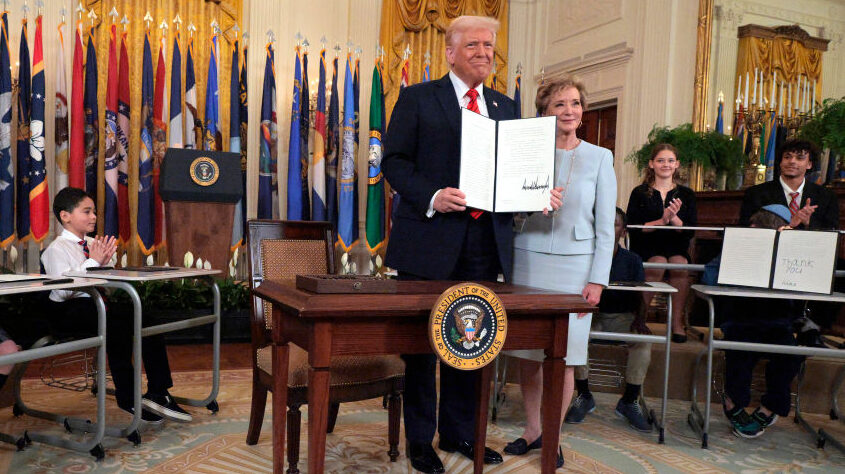
“Health care is one of the only sectors still adding good jobs, and instead of opening that path, Trump is making it harder and more expensive for nurses at every stage to pursue advanced practice roles and the opportunities that come with them,” said Weathersby.
The Department of Education dismissed the criticisms over its reform to student loan borrowing for nursing students as “fear mongering” from “progressive voices.” The Trump administration argued that data from the DOE indicates that “95% of nursing students borrow below the annual loan limit and therefore are not affected by the new caps.”
Graduate students pursuing nursing degrees are capped at $100,000, or $20,500 annually, which advocates and experts say is insufficient for the cost of nursing education.
While public institutions are more affordable, with an average annual cost of just under $12,000, private institutions can cost as much as $33,000 per year, according to data analyzed by NurseJournal.
The journal notes, “Nursing school costs aren’t one size fits all…Some programs may be costlier than others simply because they are longer in length while others may be more affordable because they are entirely online.”
“You are leaving a significant gap for many students, particularly students of color, who are women, women of color who are disproportionately higher recipients of student loans, in particular when it comes to nursing degrees,” Democratic strategist Ameshia Cross said of the Trump administration’s student loan overhaul.
“You are creating an open marketplace for them to either have to not go for the nursing degree at all, or for them to have to take out private loans. The qualifications for those private loans are a lot higher in terms of being able to access a private loan. But in addition to that, the interest rates on those loans are massive.”
The racism within the nursing profession has long been on display, most recently, in the high-profile incidents of two Black women who faced racial bias while trying to give birth at hospitals in Texas and Indiana.
“That does not happen when you have Black nurses and Black staff who recognize not only the signs but the importance of high risk patients, particularly those who have maternal mortality rates that are as high as Black women in a country that is the wealthiest nation on Earth,” said Cross.
“This is an important profession and one that has life or death consequences for people across this country. We have such a steep decline in the nursing pipeline, meaning fewer and fewer people in it, even though our aging population continues to grow, and people are living longer. They need more medical services.”
Cross said any barriers for Black women to access higher education in nursing ultimately are a detriment to an industry where they are more needed than ever.
“They have an intrinsic understanding of what it means to be ignored, that they bring that with them into the doctor’s office, into the clinic, into the emergency room, in a way that is not easily taught when it is much less understood by people who are not of the demographic.”
What's Your Reaction?
 Like
0
Like
0
 Dislike
0
Dislike
0
 Love
0
Love
0
 Funny
0
Funny
0
 Angry
0
Angry
0
 Sad
0
Sad
0
 Wow
0
Wow
0




